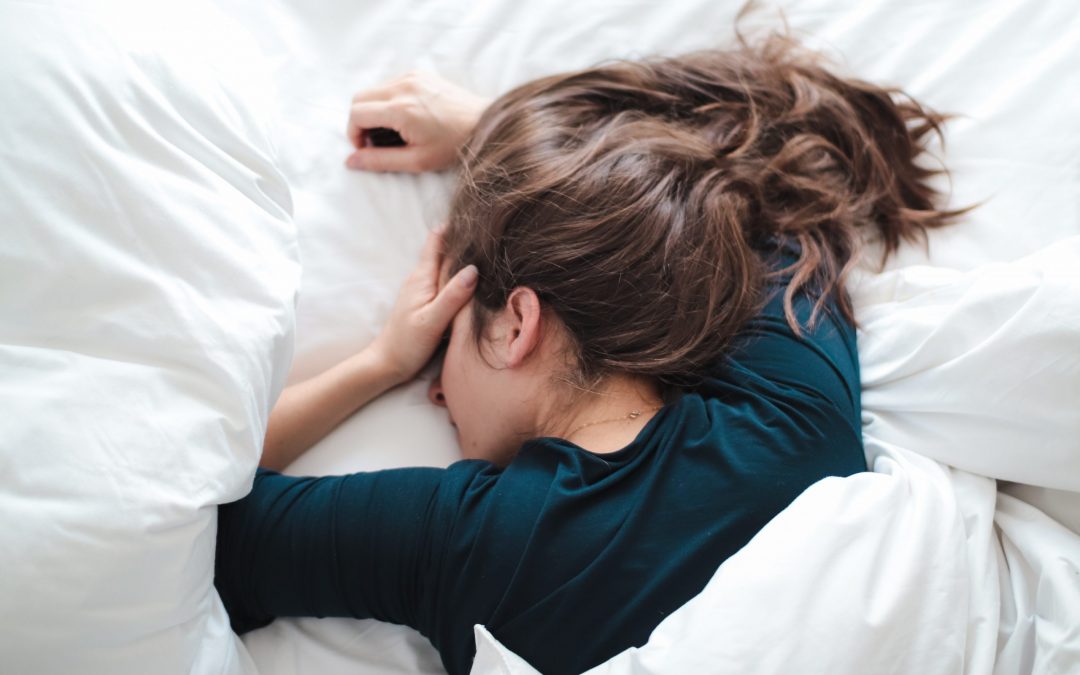Although we drink responsibly much of the time, occasionally we can over do it and wake up with the dreaded hangover. Symptoms of nausea, fatigue, headache, shakiness, and many more that can last from a few hours to a whole day. Although the common hangover has its classic symptoms, most people can have a more sinister hangover – with moderate symptoms depression or anxiety.
When we consume alcohol, there is a chemical change that takes place in our brain that causes that relaxed and calm feeling most people enjoy. This feeling is due to a chemical known as dopamine, which is released in greater supply in our brain when drinking. Now, that old saying “what goes up must come down” is very important here. After such a great rush of dopamine to the brain, we eventually run out of and crash into anxiety, depression, or both.
Hangover anxiety is a deep feeling of uneasiness, embarrassment, and excessive guilt/worry about the previous night. Common anxious thoughts can include “Was I an idiot last night?” “I need to call people and make sure I didn’t do anything to upset them” “Did I cause people to not like me?” Hangover depression is feelings of sadness, low self-worth, guilt, and a general sense of worthlessness.
If you’ve experienced either hangover depression or anxiety a few things can be done. First off, consider a life style change, cut back on the drinking and avoid hangovers all together – you know your limits and when to stop drinking. Secondly, take some time off and space out drinking. Having too much fun on a Saturday night requires a rest period — you don’t need those mimosas at Sunday Brunch! Thirdly, if you’ve experiencing this all too often, it may be time to seek professional help and give up drinking all together.
Now, let’s discuss some hangover remedies to help with that sinister depression and anxiety.
- Hydrate – if you’re experiencing a hangover, you’re probably dehydrated. Get some water or a sports drink.
- Sleep – when we’ve been drinking, we don’t so much sleep as we simply pass out. Rest the next day, take a nap, and give your body a chance to heal.
- Food – Eat ALL the ‘feel good’ foods. Give your body and your stomach of your favorite meal and enjoy it. If you want those chili cheese fries, go for it!
- Watch a movie and zone out – If you are hungover, it’s probably not the best time to start learning something new or take a project that requires a lot of mental effort. Do something that requires very little mental effort!
- Stay in the present moment. It’s really easy to fall back into the negative thoughts, so try some mindfulness and challenge the negative thoughts.
- Talk to a friend. If you’re down and feeling anxious or just generally sad, call up a friend and talk it out. Tell them how you feel and what’s really bothering you.
- Get off social media! Although there are several reasons that social media can cause and even perpetuate depression/anxiety, doing do while hungover can also be a big source of negativity. It can also create a fear of missing out (FOMO). With all your friends out enjoying the day and you’re stuck inside feeling horrible, you may start to feel worse.
So there you have it! Several ways to help alleviate some of the psychological hangover symptoms that can happen after a fun night. Remember, these symptoms are common among the weekend warrior! You are not alone and the feelings should completely go away when your hangover does.
Finally, remember that drinking is dangerous and can spiral out of control quickly. If you’ve been experiencing these symptoms nearly each week or multiple times a week – it may be time to talk to a professional.

